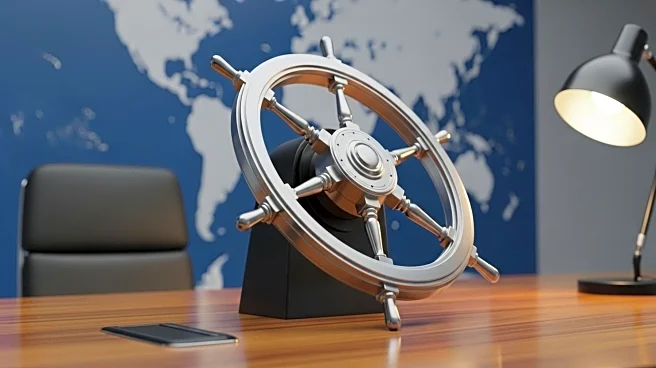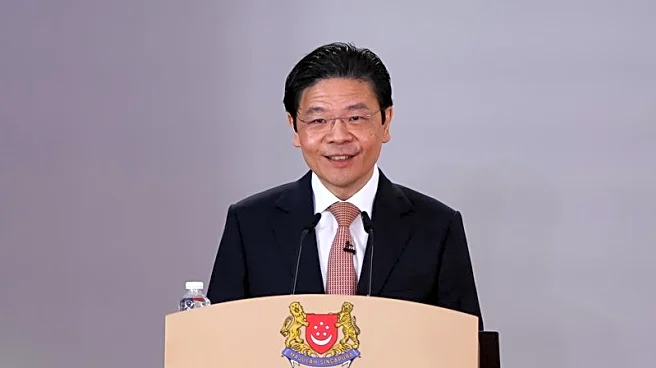What's Happening?
The International Union of Marine Insurance (IUMI) President, Frédéric Denèfle, has highlighted significant changes facing the marine insurance sector due to the slowdown in globalisation. Speaking at the IUMI conference in Singapore, Denèfle noted that geopolitical conflicts and shifting trade patterns are redefining risks and opportunities for marine insurers. He emphasized that while the end of seamless globalisation is approaching, it does not signify the end of international trade but rather a transition into a new era. This new era is characterized by disruptions in traditional shipping and logistics practices, fragmentation in global trade, and the emergence of new challenges and opportunities for risk assessment and underwriting.
Why It's Important?
The slowdown in globalisation and the resulting changes in trade patterns have significant implications for the marine insurance industry. As international commerce becomes more fragmented, insurers must adapt to new risk environments and innovate to remain resilient. The potential for increased reliance on artificial intelligence and alternative trade corridors presents opportunities for strategic diversification within the industry. However, the shift also poses challenges, such as vessels avoiding high-risk regions and the need for investment in new infrastructure. The marine insurance sector's ability to navigate these changes will be crucial in maintaining stability and trust in the market.
What's Next?
Marine insurers are expected to revisit their business plans and underwriting policies in response to the evolving global trade environment. The industry may see a resurgence of inland transport and nearshoring, as well as rising goods prices affecting inflation. Insurers will need to invest in understanding these shifts fully and embrace innovation to build trust and resilience. The sector's future will likely involve increased strategic diversification and adaptation to technology-driven changes.
Beyond the Headlines
The transition to a new era of global trade could lead to a more adaptive and strategically diversified shipping industry. The reliance on artificial intelligence and emerging markets may redefine traditional practices, creating a shipping industry that is more technology-driven. This shift could also have broader implications for global economic growth and international cooperation, as national interests take precedence over seamless integration.












